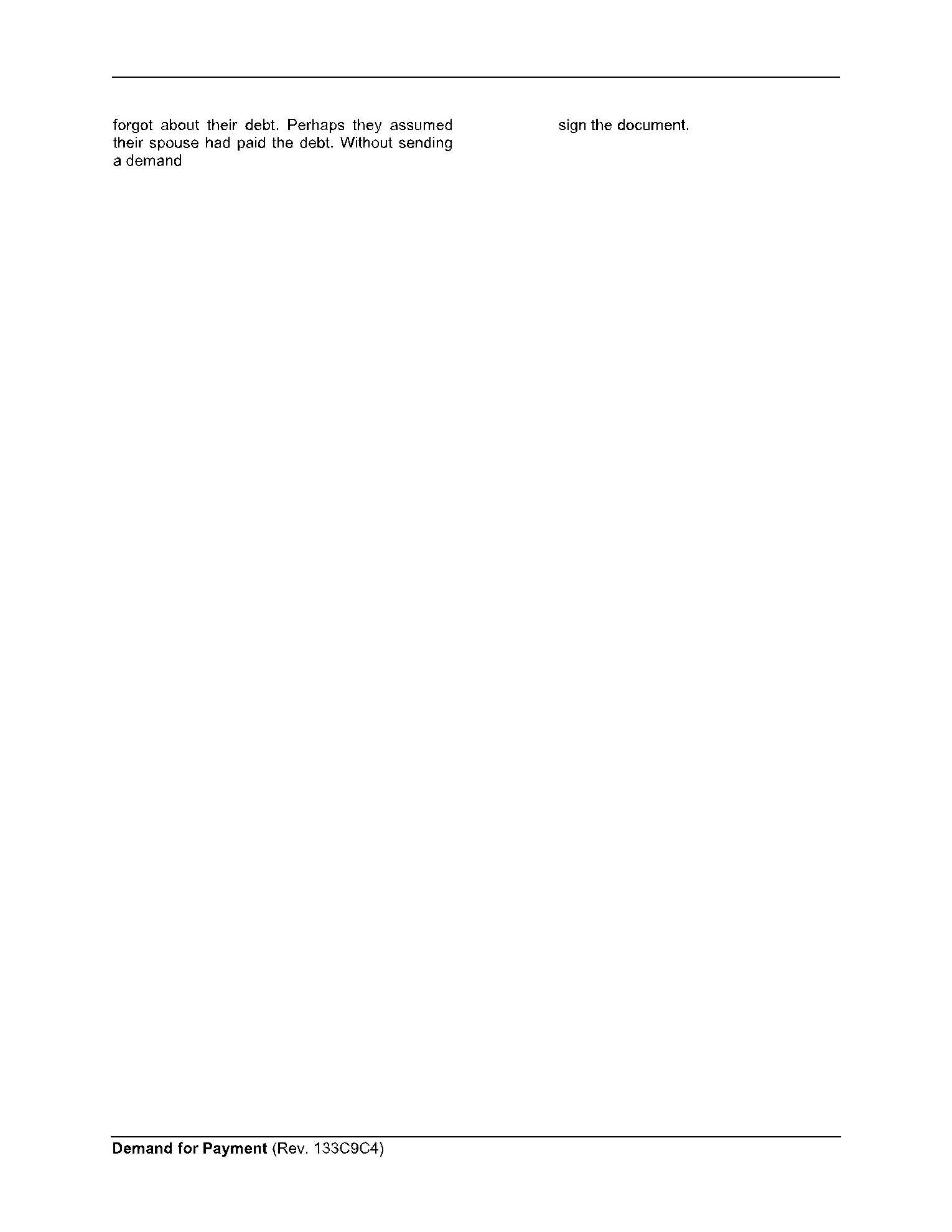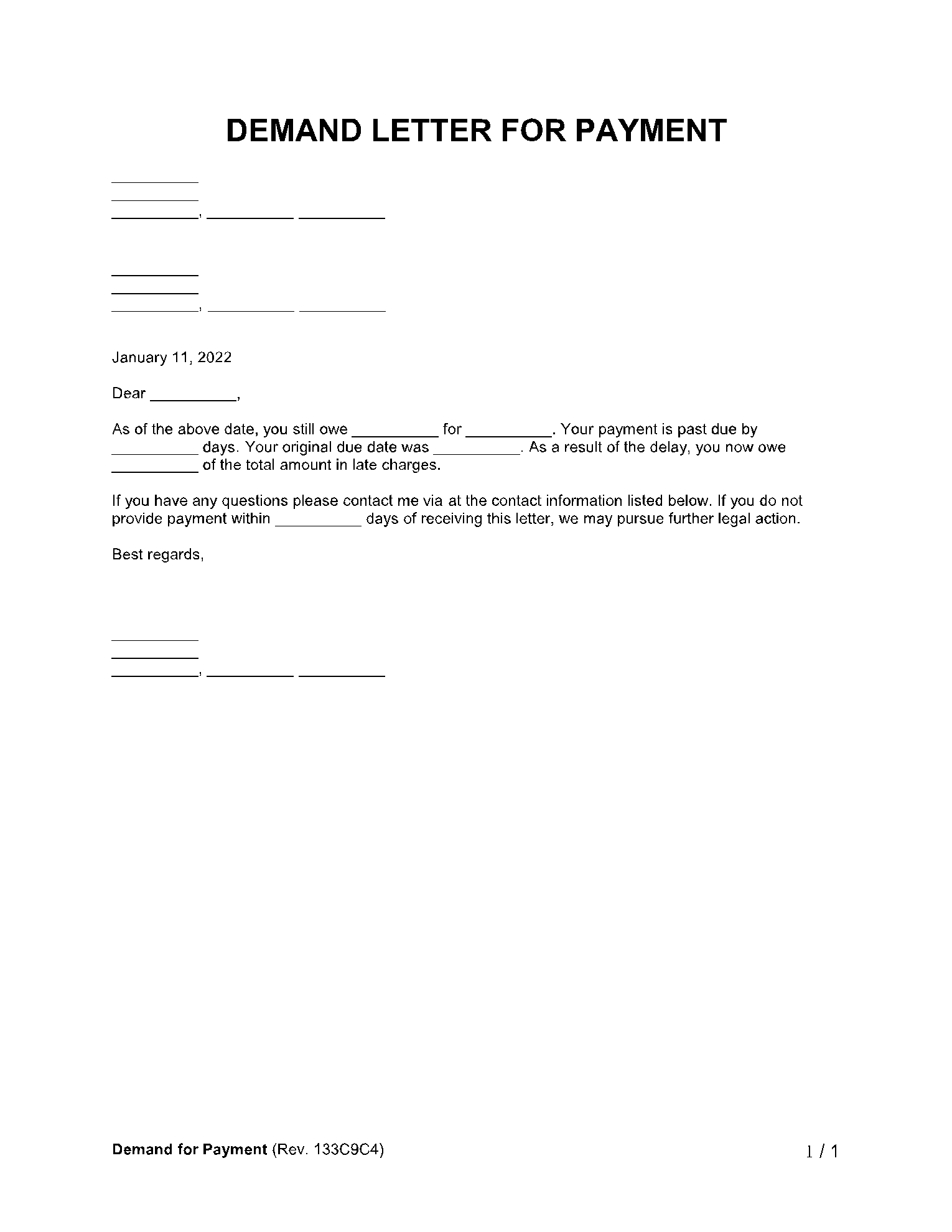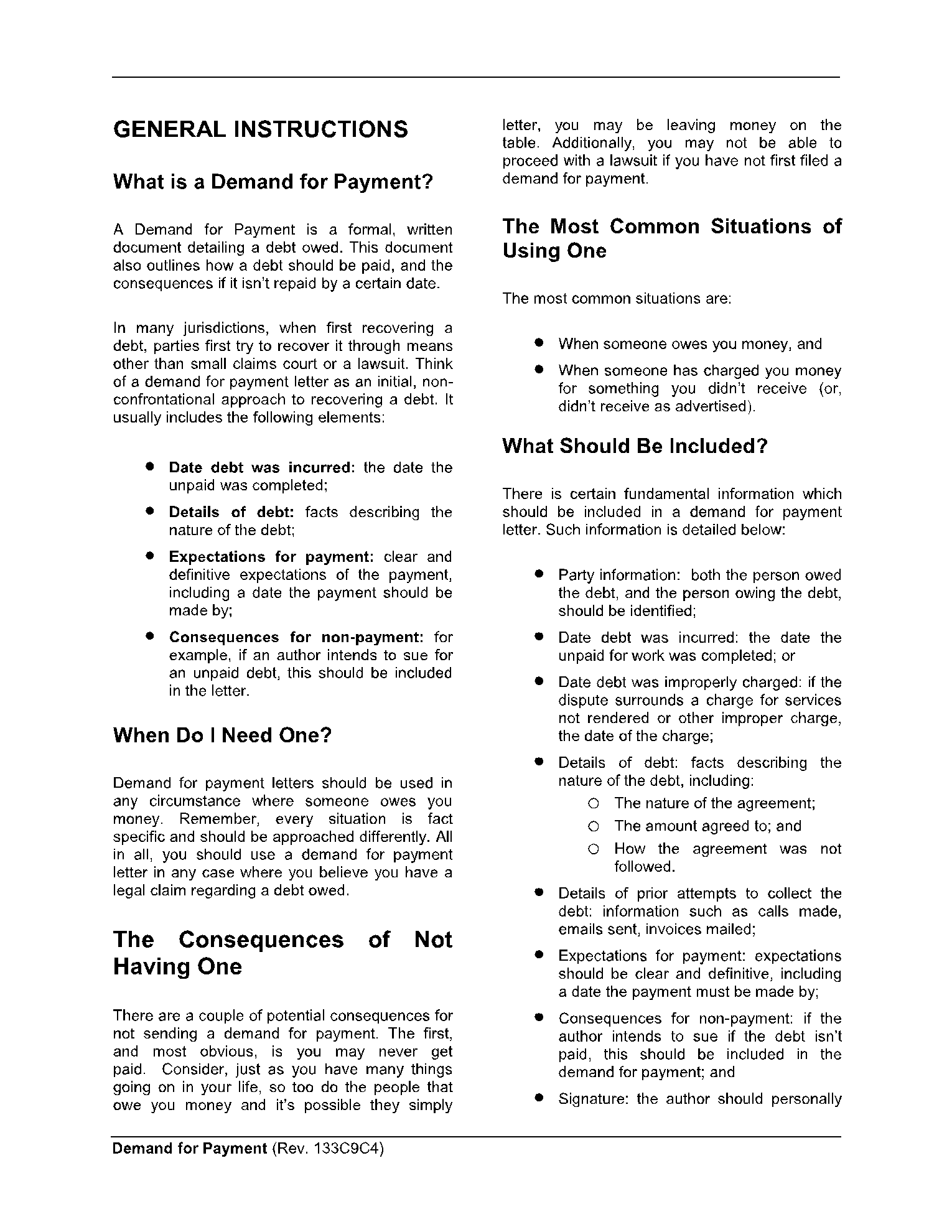If someone owes you money and fails to respond to informal requests of payment, you can send them a formal demand letter for payment. Learn all about the letter in this article, including how you go about writing one. We offer a demand letter template at the end of the article for you to follow.
What Is a Demand Letter for Payment?
A demand letter for payment is a formal document asking for payment. It gives the recipient a notice of the amount due and the specified date until which payment must be made. The demand letter for payment also describes the source of the debt and the calculations made.
Anyone can write a demand letter, though lawyers are typically hired for the task by clients. Writing a demand letter for payment isn’t a legal requirement. It’s still something attorneys recommend doing. It acts as a final notice before a formal complaint is made against the recipient.
When Should I Send a Payment Demand Letter?
The payment demand letter acts as a final warning to the recipient. As such, you should send a payment demand letter when your informal requests for obtaining payment have failed. It should always be sent a reasonable period before you lodge a formal complaint against the recipient.
Here are some scenarios where you should send a payment demand letter:
- The other party won’t acknowledge your payment requests
- They keep postponing payment, hoping you will give up
- They won’t pick up their phone
- Your emails go unanswered
- They don’t acknowledge they owe you anything
How to Write a Demand Letter for Payment?
There are three primary steps you should focus on when writing a demand letter for payment:
1. Collect evidence
You should attach as much evidence as possible to the letter. The evidence must be relevant to the disputed payment or debt in question. Some examples of evidence include:
- Receipts for purchase of goods and services
- Contractual agreement
- Photos and videos
2. Ask for payment
Make an actionable demand in your letter. If you want money, specify the exact amount in dollars – and when you expect it to be paid. Also, offer the calculations you made to come to the figure.
State, without malice, what you intend to do if they don’t settle the debt:
- File a complaint in small claims court.
- Get a collection agency involved, which may affect the recipient negatively.
- File a lawsuit.
3. Provide repayment options
You might want to offer multiple repayment options for best results, especially if you’re dealing with someone who lives from paycheck to paycheck or small businesses with little funding.
- Offer a discount – Many businesses or individuals offer to waive off a portion of the amount due as an enticement to get the other party to settle quickly.
- Offer to accept payment in installations – If it’s possible, you might offer to accept payments in weekly or monthly installments.
Tips on Writing a Solid Demand Letter for Payment
Here are some expert suggestions on how to write an effective demand letter for payment:
- Make sure you describe the situation in detail.
- Use a professional, formal tone. Don’t make threats.
- Keep the letter brief. The shorter the better.
- Use an attorney or consult with one before you write the letter.
- Send the email by certified mail with a return receipt.
- Be prepared for counteroffers – it happens frequently.
- Make copies of the letter.
- Send a follow up (applicable in some cases).
What Happens After the Letter?
After you send the letter, the recipient will either choose to settle immediately or send you a counteroffer. You can negotiate with them if they are amenable. Otherwise, you should file a complaint in small claims court. Settlements can take weeks or months, depending on your unique case.
Conclusion
Writing a demand letter for payment is a final warning to the recipient. In many cases, it puts enough pressure on them that they make the payment immediately. It’s well worth your time to write a demand letter.
You can create a professional, concise demand letter for payment with Cocosign’s free template. We also offer free templates for a range of other scenarios.



